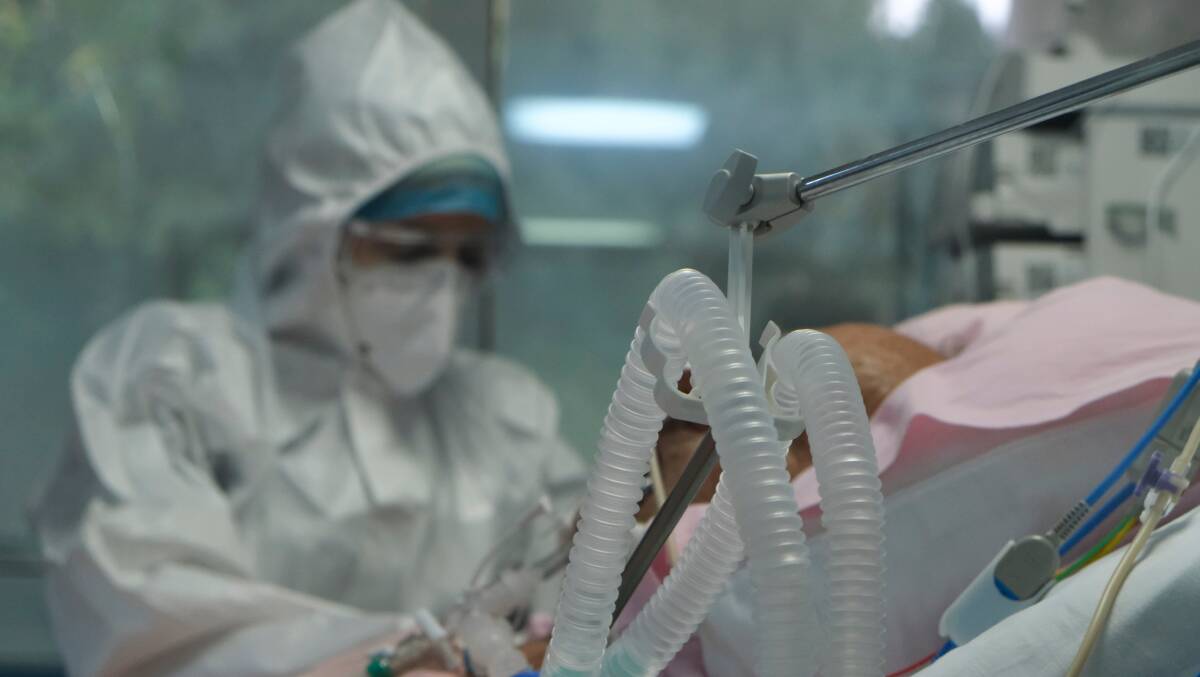COVID-19 data released by the government is "messy" and unable to truly reflect the strain faced by healthcare workers, a data expert says.
Subscribe now for unlimited access.
or signup to continue reading
Juliette O'Brien, who runs covid19data.com.au, also says Delta remains the dominant strain among intensive care patients, but warns "you don't want to get COVID now" the health system stretched.
Ms O'Brien accepts tracking COVID-19 is "much more difficult than people realise", but says data presented by governments is too "messy" to provide a coherent picture.
The Commonwealth provides the total number of boosters administered in Australia, but not breakdowns by state or age. Ms O'Brien described that decision as "insane" at a time case numbers are exploding.

"There's some data that they absolutely have, and that they choose not to release because they want to release it in their own time and on their own terms," Ms O'Brien said.
"We need to know how many people over 70 in NSW, Victoria, and major outbreak states have had a booster, and for some reason they don't release it.
"I think on that level it's intentional; it's probably because not enough people have had boosters."
Ms O'Brien argued there are a number of data-points which could, and should, be made readily available.
That includes discharges from hospital, giving a more complete picture of the strain the system is experiencing, along with the age and vaccination status of people in hospital.
"All we get is a snapshot of people in hospital today, and we have no idea how many people went in or came out," she said.
"It's just incredible that even that very important data is essentially released to us in snapshots.
"We've become accustomed to these snapshots, but with real data we would know where we've been and where we going. That's the point of putting a line on a graph. Snapshots don't cut it."
Earlier this week, reports suggested up to 50 per cent of patients listed as in hospital because of COVID were there for other reasons.
MORE COVID-19 NEWS:
But Ms O'Brien enlisted clinicians at two major hospitals to do random sampling, finding the rate was "far lower" than 40 per cent.
She says it is impossible to know exactly where the figure stood because authorities were not releasing adequate data.
"That's why turned to asking exhausted, overworked clinicians to take time out of their schedule, or stay back and do this quick sample analysis for me," she said.
"I'm not saying that's perfect data, but it's better than what the government is releasing at the moment.
"It's a critical question because helps us understand what 35,000 confirmed cases [in NSW] today might mean for the hospital system in seven to ten days."
Around 75 per cent of patients in intensive care are infected with Delta, but that data can not be extrapolated because not enough have had their infection sequenced.
Ms O'Brien warned against viewing hospital capacity as a "black and white" issue, saying the system is already being propped up by health care workers going "above and beyond".
Although it was clear Omicron is less severe than Delta, Ms O'Brien says it comes with other challenges, particularly at scale.
"They say the hospital system is coping, but there is so much grey area within that," Ms O'Brien said.
"Who's being turned away? What sort of care are people getting? And also, what sorts of demands are being placed on the health care workers who are making this work?"
"The staff are so stretched, you won't receive best care at hospital. So we're all going to get COVID, but you don't want to get it now."
Our coverage of the health and safety aspects of this outbreak of COVID-19 in the ACT is free for anyone to access. However, we depend on subscription revenue to support our journalism. If you are able, please subscribe here. If you are already a subscriber, thank you for your support. You can also sign up for our newsletters for regular updates.
Our journalists work hard to provide local, up-to-date news to the community. This is how you can continue to access our trusted content:
- Bookmark canberratimes.com.au
- Download our app
- Make sure you are signed up for our breaking and regular headlines newsletters
- Follow us on Twitter
- Follow us on Instagram


